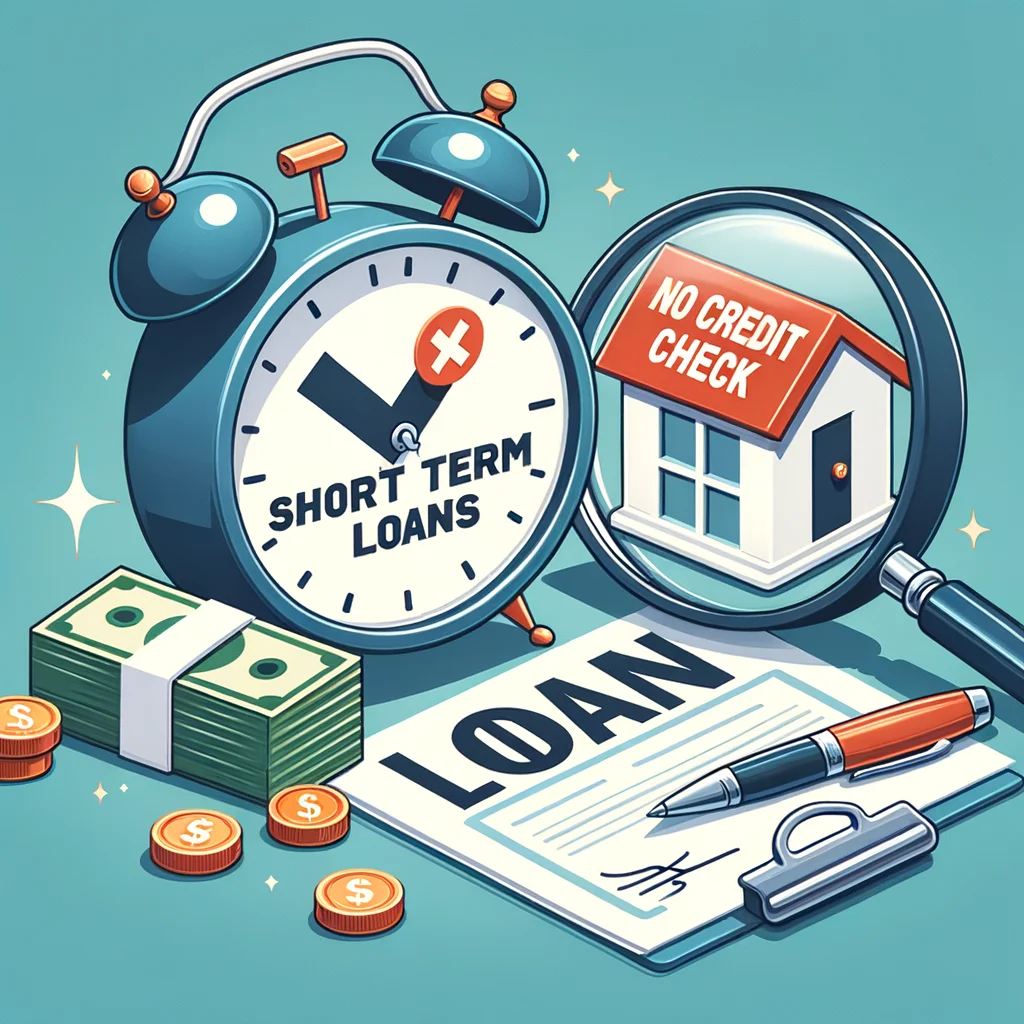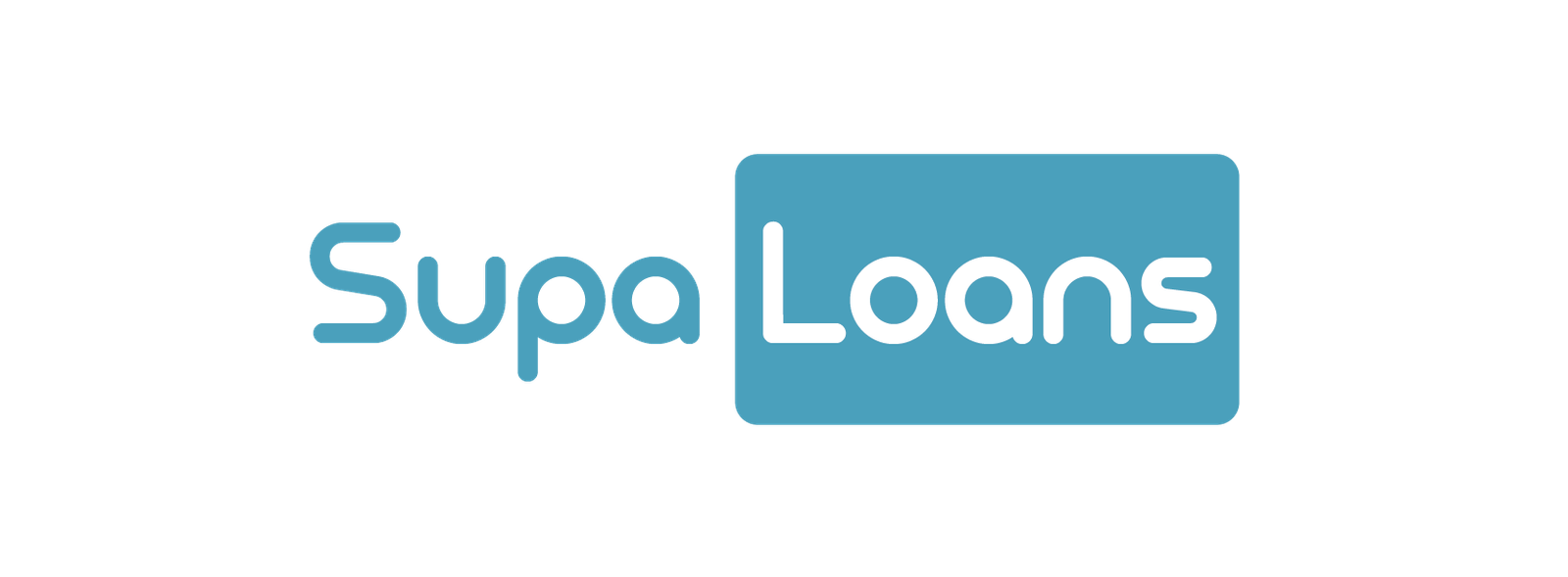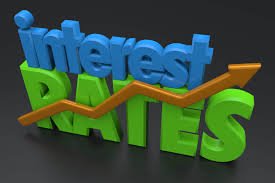Short Term Loans No Credit Check
Short Term Loans No Credit Check – short-term loans are a financial product designed to provide borrowers with quick access to cash, typically for a relatively brief duration. Unlike long-term loans, which can span several years, these loans generally have a repayment period ranging from a few weeks to a few months. The amount that one can borrow varies, but it usually falls within the range of a few hundred to a few thousand dollars, making it a suitable option for those encountering immediate financial needs. They are particularly attractive to individuals facing urgent expenses, such as medical bills, car repairs, or unexpected home maintenance costs.
The appeal of short-term loans primarily lies in their accessibility and speed. Many lenders offer a streamlined application process, with minimal documentation required, which makes obtaining funds feasible even for those with poor credit history. Specifically, short term loans no credit check have gained traction among those unable to qualify for traditional financing options. This facet allows individuals to receive the assistance they need without the burden of extensive credit evaluations.
Short-term loans can serve various purposes, such as consolidating debt, covering everyday living expenses during a financial crunch, or seizing a fleeting opportunity that requires immediate funding. The flexibility these loans provide enables borrowers to utilize the funds according to their pressing needs. However, it is essential to approach short-term financing with caution; the quick turnaround can often lead to higher interest rates compared to other lending options. Therefore, individuals should thoroughly assess their repayment capabilities before committing to a short-term loan, ensuring that it is indeed a fit for their financial situation.
The Implications of Bad Credit
Having bad credit can significantly impact an individual’s financial options and opportunities. Credit scores, typically ranging from 300 to 850, are calculated based on various factors, including payment history, credit utilization, length of credit history, types of credit accounts, and recent credit inquiries. Those with lower scores generally face increased difficulty in securing loans or lines of credit, as lenders view them as higher risk borrowers.
The stigma associated with bad credit often exacerbates the situation. Individuals with low credit scores may feel embarrassed or reluctant to discuss their financial history, which can hinder their ability to apply for necessary funding. The traditional banking system primarily favors those with good credit, often leaving individuals with bad credit to seek alternative solutions. This can lead to a cycle of financial instability, as individuals may resort to high-interest loans or predatory lending practices in their desperation for funds.
Furthermore, having bad credit can result in higher interest rates for any available credit products, including short-term loans. Lenders justify this by correlating lower credit scores with a greater likelihood of default, thereby increasing the cost of borrowing for these individuals. As a result, those in need of immediate financial assistance may find themselves trapped in a challenging situation, where the very short-term loans they seek to alleviate financial stress come at a significantly higher price. This creates an urgency for individuals to explore options that cater specifically to their circumstances, such as short term loans for low credit score, which offer alternative avenues for securing quick funding without the stringent requirements imposed by traditional lenders.
Short Term Loans No Credit Check Options
Individuals facing financial difficulties often seek short-term loans as a quick solution to bridge the gap between expenses and income. For those with bad credit, there are several options available, each with its unique benefits and drawbacks. Understanding these short-term loans is crucial for making informed financial decisions.
One prevalent type of short-term loan is the payday loan. Typically, payday loans are small, short-duration loans meant to be repaid on the borrower’s next payday. They are easily accessible, often requiring minimal documentation and no credit check. However, these loans can come with exorbitant interest rates and fees, making them an expensive option if the borrower cannot repay promptly.
Another option is the title loan, which allows individuals to borrow money against the value of their vehicle. Title loans can provide larger amounts compared to payday loans and are often approved quickly. Like payday loans, title loans usually do not require a credit check, making them an appealing choice for those with poor credit histories. However, the risk is significant; defaulting on a title loan can lead to the loss of the vehicle used as collateral.
Cash advances are another short-term financing option, typically offered through credit cards. Such advances permit users to withdraw funds up to a predetermined limit, regardless of their credit score. While cash advances can be useful in emergencies, they often carry higher interest rates compared to regular credit card purchases and can incur additional fees.
Each short-term loan option has its pros and cons. Individuals considering these loans must weigh the urgency of their financial needs against the potential burden of high-interest rates and fees. Examining all available options will enable borrowers with bad credit to select the most suitable financing solution.
No Credit Check Short-Term Loans Explained
No credit check short-term loans represent a financial solution designed for individuals who may struggle to obtain traditional loans due to poor credit histories. These loans do not require a thorough examination of the borrower’s credit score, making them more accessible to those with bad credit. Instead of conventional credit evaluations, lenders often analyze alternative data points such as income level, bank account statements, or employment verification when determining eligibility.
The operation of no credit check loans typically involves a straightforward application process. Borrowers can usually complete applications online, providing basic personal information and demonstrating their ability to repay the loan. Approval times are often swift, with funds disbursed within a few hours or by the next business day. This efficiency makes these loans particularly appealing for individuals facing urgent financial needs or unexpected expenses.
However, it is essential to consider both the benefits and the potential risks associated with no credit check short-term loans. On the positive side, they provide an opportunity for individuals with bad credit to secure necessary funds without the roadblocks posed by traditional lending practices. Additionally, timely repayment can positively influence a borrower’s credit score, potentially opening doors to better financial products in the future.
Conversely, the risks include higher interest rates and fees compared to standard loans. Lenders often charge elevated costs to offset the perceived risk associated with borrowing. Thus, it is crucial for borrowers to meticulously review the loan terms, assessing their ability to repay without exacerbating their financial situation. In summary, no credit check short-term loans can be a viable option for individuals in need of quick cash, provided they approach such financial solutions with vigilance and an understanding of their implications.
Criteria for Approval on Short-Term Loans
When individuals seek short-term loans no credit check, it is essential to understand the criteria that lenders evaluate during the approval process. While a poor credit history may pose challenges, many lenders utilize alternative factors to assess an applicant’s financial stability and ability to repay the loan. One of the primary considerations is income verification. Lenders typically require documentation that confirms the applicant’s income, whether through pay stubs, bank statements, or tax returns. A steady source of income can significantly enhance the likelihood of approval, as it assures lenders of the borrower’s ability to meet repayment obligations.
Moreover, employment status plays a crucial role in the assessment process. Lenders often prefer borrowers with a stable job history, as this indicates a level of reliability and a consistent income stream. Length of employment, type of employment, and the nature of the job can all impact the decision-making process. For instance, individuals employed in full-time positions may be viewed more favorably than those in temporary or freelance positions.
Another important factor is the applicant’s debt-to-income ratio, which compares the total monthly debt obligations to the gross monthly income. A lower ratio suggests a better financial standing, increasing the odds of obtaining short-term loans no credit check. Additionally, some lenders may examine bank account histories to ensure that the borrower maintains a reasonable balance, which can further influence their decision. Ultimately, understanding these criteria equips applicants with better knowledge of their chances for approval and the steps they might take to improve their solicitation for financial support. By focusing on stable income, employment history, and responsible financial behavior, individuals with bad credit can enhance their profiles for securing a loan.
Finding the Right Lender
When seeking short-term loans, especially in the context of poor credit history, selecting a reputable lender is paramount. Many individuals often find themselves in a predicament where traditional lending avenues have closed due to their credit scores. Therefore, exploring alternatives such as short term loans no credit check can help bridge financial gaps. However, it is crucial to ensure that the lender’s practices are above board to avoid potential pitfalls.
One of the first steps in identifying a trustworthy lender is to check for licensing and registration. Legitimate lenders must be licensed to operate in the states where they provide loans. This regulation varies by state, so understanding local laws can aid in distinguishing between credible lenders and those operating unscrupulously. Additionally, researching lenders through trusted financial industry websites can shed light on their legitimacy.
Moreover, reviewing the terms and conditions that each lender offers is essential. A reliable lender should provide transparent and easily understood information regarding interest rates, repayment plans, and any associated fees. Compare these details across multiple lenders to gauge what is reasonable. Be particularly cautious about exorbitantly high fees, which can be red flags indicating predatory lending practices.
Reading reviews from previous borrowers can also provide insight into the lender’s reliability and customer service. Look for patterns in reviews that might indicate difficulties with repayment terms or hidden fees. Platforms that aggregate consumer reviews help facilitate better-informed choices by comparing experiences across different lenders.
Ultimately, taking the time to methodically assess potential lenders can make a substantial difference in the experience of obtaining short-term loans no credit check. This diligence not only safeguards one’s financial well-being but also enhances the likelihood of a positive lending experience.
Managing Short-Term Loan Payments
Managing payments on short-term loans, especially for individuals with bad credit, can present a significant challenge. The key to preventing a cycle of debt lies in establishing a well-structured repayment plan. One of the first steps in this process is to adopt a rigorous budgeting strategy. By outlining all income sources and expenses, you can identify how much money can be allocated toward loan payments each month. A detailed budget not only increases financial awareness but also helps in prioritizing essential expenses over debts.
In addition to budgeting, setting reminders for payment due dates is crucial. Many individuals miss payments due to simple forgetfulness, which can lead to additional fees and a negative impact on credit scores. Utilizing tools such as calendars, mobile apps, or automated bank notifications can create a fail-safe method to ensure on-time payments. Being proactive in this regard can save both money and stress in the long run.
Another effective strategy is to explore opportunities for refinancing or consolidating short-term loans. This approach may allow borrowers to extend repayment terms, reduce monthly installment amounts, and ultimately improve their financial stability. Many lenders offer products specifically targeting individuals with bad credit, which can help in fulfilling financial obligations without the overwhelming burden of high-interest rates. Furthermore, understanding the terms of any refinancing option is crucial; clear communication with lenders can provide insight into the best available options.
In conclusion, by adopting a thoughtful approach to budgeting, establishing reminders, and considering refinancing or consolidation, individuals can effectively manage their short-term loan payments. Consequently, this strategic management can help avoid the pitfalls of debt cycles and foster a more robust financial future.

Alternatives to Short-Term Loans
A short term money loan, especially those that do not conduct credit checks, can offer quick financial relief to individuals facing immediate cash flow challenges. However, these options are not without their drawbacks, prompting many to seek alternatives. Personal loans from credit unions present a viable solution for those with bad credit. Credit unions often provide more favorable terms than traditional lenders, with lower interest rates and flexible repayment options. The membership requirements may vary, but they can often provide loans with a focus on community support rather than profit maximization.
Another alternative is installment plans offered by retailers or service providers. These plans allow individuals to purchase goods or services upfront while spreading the payment over time. This method is often interest-free if payments are made on time, making it an attractive choice for those who need immediate access to products or services without the burden of high-interest loans. However, it’s crucial to read the terms carefully, as late payments can incur significant fees and damage an individual’s credit score.
Additionally, borrowing from family or friends can be a feasible option for some. This method is usually interest-free and can offer flexible repayment schedules. However, it is important to approach these situations delicately, as financial agreements can strain personal relationships. Setting clear expectations and boundaries can help maintain healthy dynamics while alleviating financial pressures.
Ultimately, exploring these alternatives to short-term loans no credit check can lead to more sustainable financial solutions. Each option has its benefits and pitfalls, so individuals should assess their unique situations, financial health, and social relationships when considering the best path forward. Evaluating these alternatives can lead to better financial health in the long term.
Final Thoughts on Short-Term Financing
In navigating the landscape of short-term loans, particularly for individuals with bad credit, it is essential to carefully evaluate both the benefits and drawbacks associated with this type of financing. Short term loans no credit check can provide immediate financial relief, especially in situations where unexpected expenses arise or when cash flow is temporarily disrupted. These loans can be a valuable resource for those requiring urgent funds without the lengthy approval processes typically associated with traditional lending methods.
However, one must remain vigilant about the potential risks involved. Short term loans often come with higher interest rates and less favorable repayment terms compared to conventional loans. This means borrowers must assess their financial capabilities realistically. It is critical to understand the total cost of borrowing, including interest and fees, which can accumulate quickly if payments are missed or delayed.
Moreover, borrowing without considering one’s financial situation can lead to a cycle of debt. Individuals may find themselves resorting to additional short term loans no credit check to cover previous debts, ultimately resulting in a precarious financial position. Therefore, it is advisable to reflect on alternative solutions such as budgeting or consulting with a financial advisor before proceeding with a loan application.
Ultimately, the decision to pursue a short-term loan should not be taken lightly. Careful consideration of one’s financial situation, the reasons for seeking such a loan, and an evaluation of one’s ability to repay it in a timely manner are crucial steps in this process. Considering all these factors will lead to more informed decisions and potentially mitigate the long-term impacts of short-term debt.






